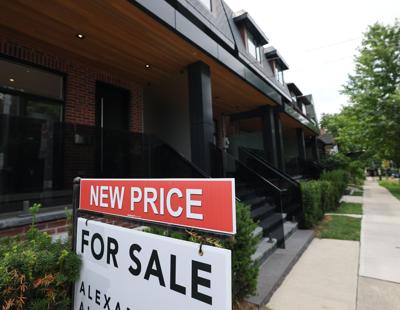The º£½ÇÉçÇø¹ÙÍøarea saw the average home price drop for the seventh consecutive year-over-year decline with detached homes plummeting 10 per cent, as buyers continued to benefit from increased choice and negotiating power in August.Â
Last month, the average price was down 5.2 per cent compared to the same time last year, reaching $1.02 million — and remained flat compared to July, according to the º£½ÇÉçÇø¹ÙÍøRegional Real Estate Board’s (TRREB) Thursday report.Â
The average sales price for all property types has dropped by more than 23 per cent in the GTA since the February 2022 price peak.
On a seasonally adjusted basis, August home sales edged lower month-over-month compared to July 2025 by almost two per cent — the first time sales dropped month over month since March — but increased by 2.3 per cent compared to the same time last year.
It’s not unusual for sales to dip in August, said TRREB chief information officer Jason Mercer.
“The lowest sales months are in December and January with the spring months (April to June) typically being the strongest months in the year,” he said.Â
August sales of 5,211 are lower than the peak of 10,700 sales in August 2020 and 8,500 in August 2021, he said, but that’s because ultralow borrowing costs at the time spurred a buying frenzy in the market.
While sales increased over August 2024 (which saw 5,092 transactions), inventory swelled by more than nine per cent, pushing the sales-to-new-listing ratio to 37 per cent. Anything lower than 40 per cent is considered a buyers’ market, where buyers have more choice and can negotiate better pricing.Â
“People have more negotiating power from a monetary and a non-monetary perspective compared to the peak of the market in 2020 and 2021,” said Mercer.
While buyers are negotiating on pricing, they’re also asking for more conditions such as home inspections and longer closings.Â
In Toronto, the 10 per cent year-over-year drop in detached home prices was the largest decline, followed by semi-detached at six per cent, and condos at two per cent, while the average price of townhomes increased by one per cent.
It’s difficult to say why prices for detached homes dropped more than other property types, Mercer said, but the variation in detached homes from the more affordable to the ultra-luxury segment can greatly impact the drop in detached home prices.
For sales, semi-detached homes saw the largest sales increase year-over-year by almost 18 per cent. That’s because the supply is more affordable for single-family homebuyers and a more “realistic entry-point” for those looking to buy their first property, he added.Â
While sales have gained some momentum in recent months, households earning an average income the GTA still find it challenging to afford current prices as the monthly carrying costs of a mortgage are too costly, Mercer said.
“This is even with lower borrowing costs and selling prices over the past year,” he added.Â
The Bank of Canada held its key interest rate again in July at 2.75 per cent.Â
Any further cut from the bank would help buyers on the margins, Mercer said.Â
There are also “spinoff benefits” of lowering interest rates to push the housing sector out of this period of stasis and improve the overall economy, he said.
“The housing sector can drive economic growth, it adds additional jobs in professional services, renovations, moving services … there’s all these local economic benefits,” Mercer said.
“The housing market has been a leader of economic recovery.”





























To join the conversation set a first and last name in your user profile.
Sign in or register for free to join the Conversation